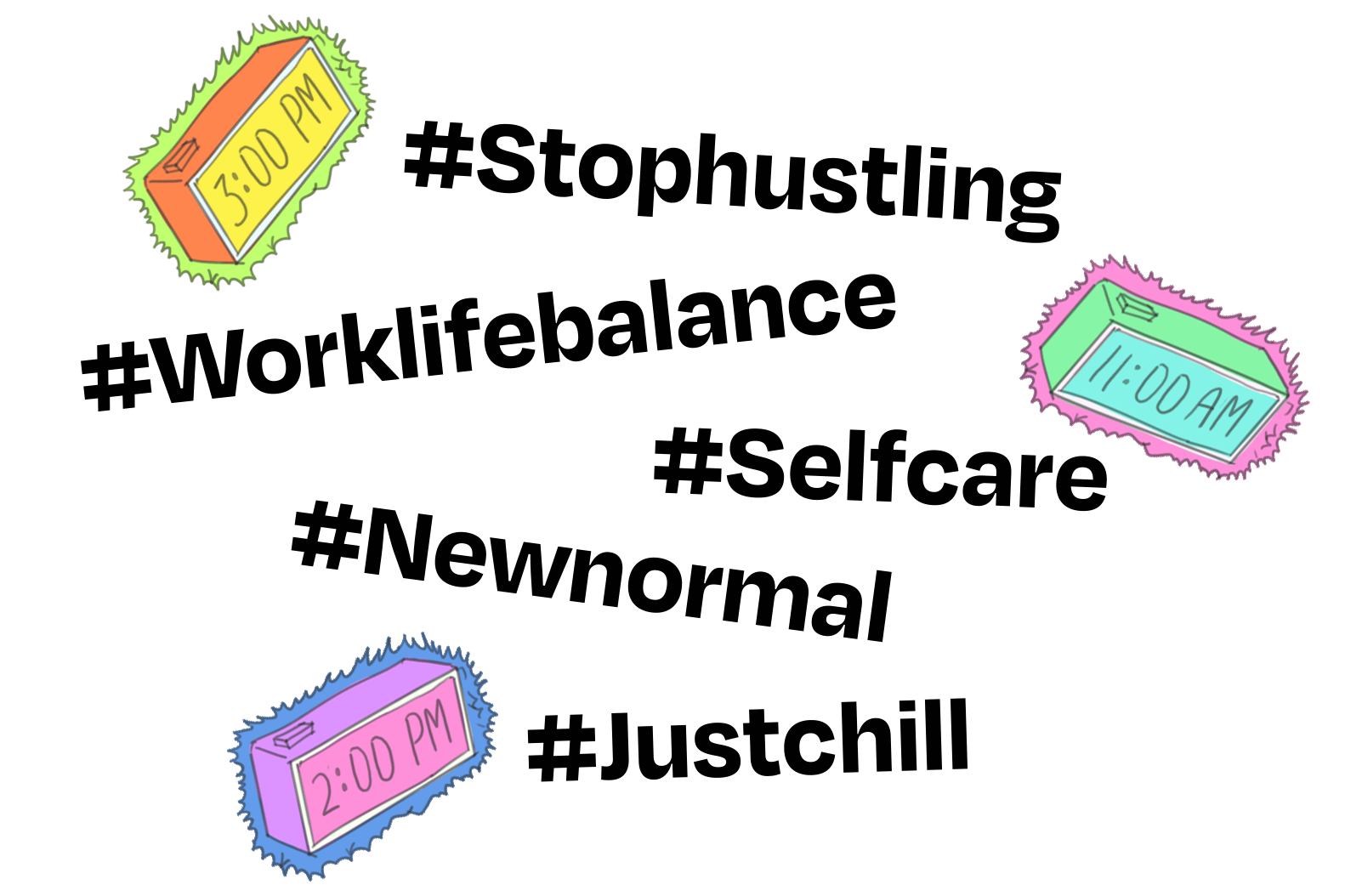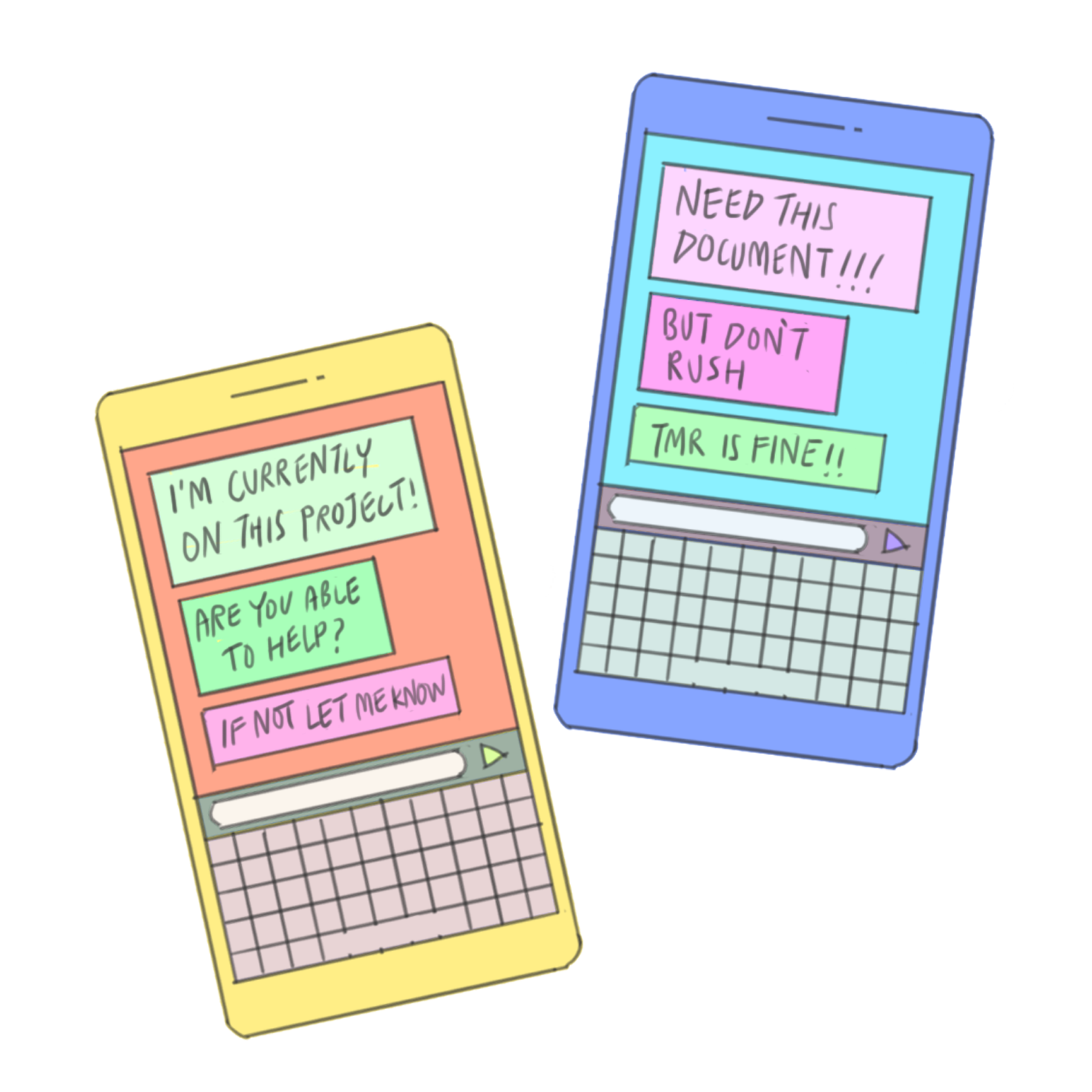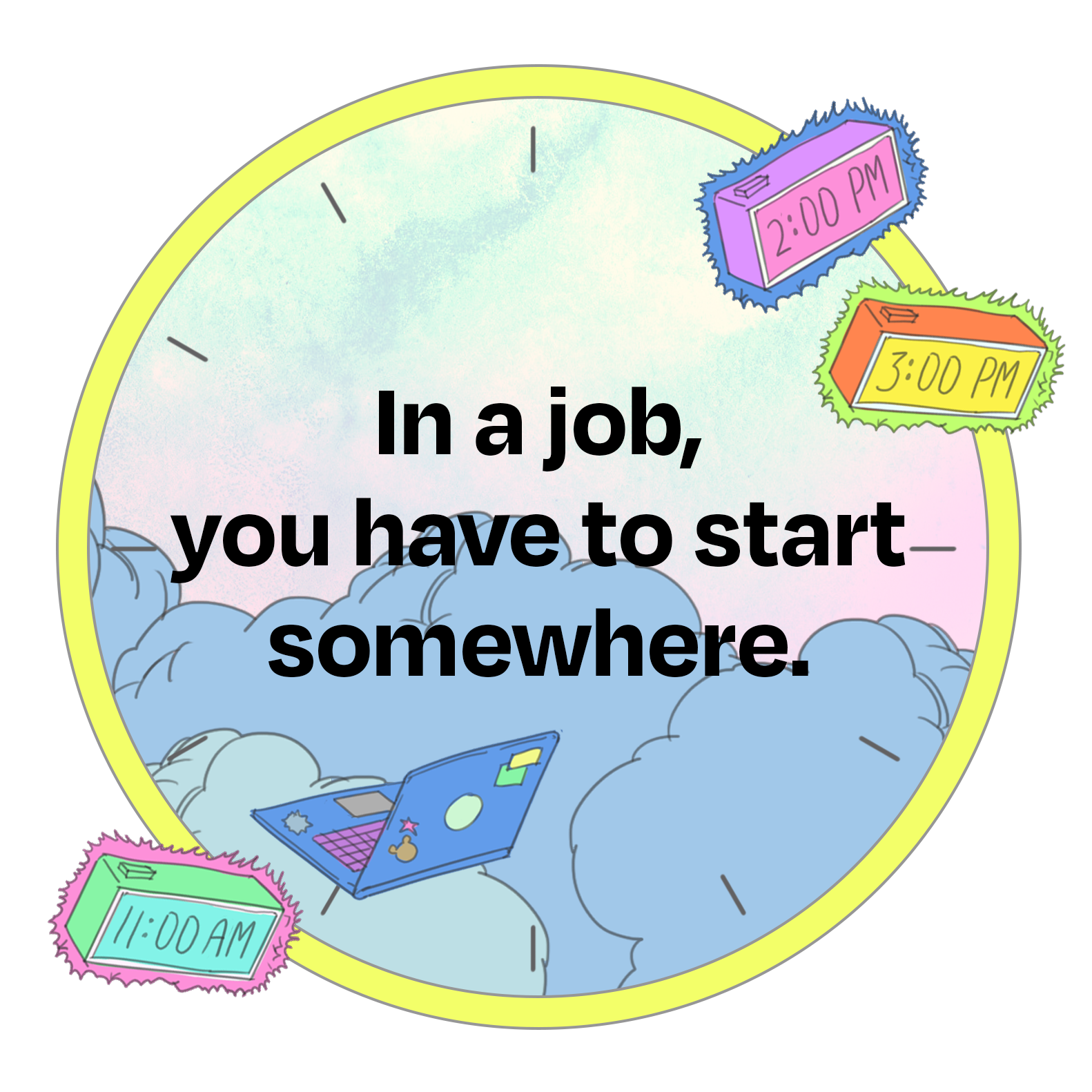I recently learned about this new trend of “quiet quitting”. It doesn’t mean leaving your job, but doing the bare minimum at work.
After TikToker Zaid Khan posted about the trend, the term started to go viral.
The term “quiet quitting” has since taken on a few other definitions for different individuals. For some, it could mean mentally checking out from work. For others, it became about doing work that was only within their pay grade. No more, no less. Or it could mean a retreat and protest against hustle culture. The interpretations are endless.
This new movement comes in the wake of the greatest global work-from-home experiment that saw employees rethinking what work could and should look like including permanent remote work, not working much on Fridays, or in some cases (amid the Great Resignation) not working at all.

I was also reminded of the Chinese buzzword “躺平” (tang ping), which literally means to “lie flat”.
Rather than trying to keep up with society’s expectations or fight them, many are resolving to simply “lie down”. It signals a decision to just scrape by, putting in the bare minimum effort at an unfulfilling job, as opposed to the futility of raging against the capitalist machine.
So be it “quiet quitting” or “lying flat”, what might these new attitudes say about us?
Demystifying “quiet quitting”
A pre-pandemic survey in 2017 found that 70% of professionals in Singapore said they were bored with their work.
The pandemic further exacerbated this corporate ennui when homes became offices. With remote work, people naturally felt less involved and less connected with their team.
The boundaries for when work starts and ends also disappeared, and it was overall much easier to become even more disengaged, disenchanted and disillusioned about work.
Gallup’s State of the Global Workplace report also found that job dissatisfaction is at a staggering all-time high, and that unhappy and disengaged workers cost the global economy US$7.8 trillion in lost productivity over 2021.
In Deloitte Global’s 2022 Gen Z and Millennial survey, it was reported that these generations are striving for balance and advocating for change like never before.
Work-life balance plus learning and development opportunities were named as the top priorities for respondents when choosing an employer.
45% of Gen Zs experienced burnout due to their work environment and 44% left their jobs due to workload pressure.
The reports also revealed the varying reasons as to why someone might “quiet quit”:
- Presenteeism: having an unspoken illness or a medical condition that hinders his or her performance
- Boreout: being chronically bored at work
- Overwork and burnout from lack of work-life balance
- Dissatisfaction from lack of wage increases
- Discouragement from lack of acknowledgement and affirmation
- Disinterest in growth as a rejection of hustle culture
- Self-care
Boundaries or barriers?
None of the above-mentioned reasons are inherently wrong, but they do point to a larger and more dangerous problem: boundaries. Or the lack thereof.
There is a way of still being engaged with your work while also having clear boundaries.
Since we started working remotely, my boss has explained to us that he sometimes sends out work-related stuff at night because it’s the window of time he has to himself after taking care of his kids. We know that we are not obliged to respond immediately – unless it’s an emergency.
In this case, observing boundaries requires mutual discipline. My boss should not get mad that he’s not getting prompt responses from us out of work hours, and we should withhold ourselves from defaulting to 24/7 standby mode.
We make sure that we’re responsive during work hours so that he knows that we’re not ignoring him deliberately or out of ill-intent. This way, we help each other in adapting to healthy boundaries.

Setting professional boundaries don’t have to involve soured relationships or disgruntled colleagues.
Communicate your expectations and your limits clearly to your supervisor and colleagues and come to an agreement together. Set boundaries, not barriers.
That said, it will be highly unreasonable for everyone to demand and expect that their boundaries and expectations are fulfilled entirely.
A healthy relationship involves both parties supporting each other towards growth and in solving problems together.
Your team needs you
For all the more innocent reasons behind one’s decision to check out at work, there are also cases where the reasons for “quiet quitting” dangerously blur into laziness, stubbornness and rebellion.
As a supervisor myself, I have seen how corporate ennui can endanger the entire team.
Other colleagues find their workload increasing to pick up the slack.
In some worse cases, “quiet quitters” are not sorry about their limited performance but are reluctant to leave their positions. As a result, team morale and chemistry plummets.
In a separate conversation with my friends, they lamented that the two most commonly heard refrains from their colleagues were: “This is below my pay grade” and “I don’t want to be stretched”.
One of them recounted to me how they’ve had employees in their team who persistently refused to get work done during working hours because they were “in need of a break”.
“If you need a break, you go on leave,” she quipped.
Another complained about how materials for a client presentation was due at 6pm, but the employee in charge was uncontactable way past the deadline.
In return, my friend was told that she was micromanaging and she could’ve asked others to help if it was that urgent. No reason was given as to why the person in charge failed to turn in the work due.
In a team, each member needs to be pulling his or her own weight… Your team needs you.
It’s hard to make a case that such an attitude isn’t insubordination.
Teams suffer when there is a lack of ownership.
In a team, each member needs to be pulling his or her own weight. When any one person decides that they’re only going to do what they choose to do, trust begins to fail and frustration grows.
A ends up doing more than she should because B unilaterally decided to limit the scope of his work. It’s a vicious cycle which helps no one.
Your team needs you.
Rethinking job and vocation
Some have also reasoned that their motivation to “quiet quit” was because they found no meaning in their work.
Traditionally, a job was just an economic transaction. You are paid wages for your labour which allows you to earn and keep.
But employees today expect more. They should be able to derive purpose and meaning from their work.
In an episode of The Reason Interview With Nick Gillespie, Whole Foods CEO John Mackey said, “You can’t expect to start with meaningful work. You’re going to have to earn it over time.”

As someone who has been working non-stop for the past six years, I can attest that the early days of your career involve a lot of grunt work that often feels bland and pointless.
Developing and honing skills can be a painful and unpleasant process. In order to improve in your craft, there are bound to be days filled with boring tasks and disappointing failures. The worst part of this is that it often feels like a repetitive cycle or an uphill climb with no end in sight.
I understand. It’s hard to find great meaning and purpose when you’re working on different projects back-to-back, staying up to perfect a presentation deck for a client pitch, or organising statistics and analytics for company reports.
But this is how we pick up skills like peer leadership, time management, work delegation and vision casting.
In a job, you have to start somewhere. By gaining new skills in your arsenal, you gain trust and respect from your team and your employer. It gives you bargaining rights to negotiate things like boundaries, workload, job scope and higher wages.
However, if a sense of meaninglessness continues to bite at you over a prolong period then you may need to question if you’re in the right job.
It is possible that you may not even be in the right place after all, and the next fairest step for everyone in that situation would be for you to be refitted in a new role, or a new job that better aligns with your capacities and capabilities.
A note to the employers
Finally, management and leadership incompetence could also be one of the reasons contributing to “quiet quitting”.
Employers or anyone in any leadership capacity in an organisation should also be proactive in making sure that they have a healthy team.
Your team needs to be motivated and valued – encourage them when they’re doing good, come alongside them when they need help and support.
Don’t pinpoint mistakes and call out people for poor performance. Instead, invest in your people. Find out what their aspirations and ambitions are. Listen. Help them to succeed. Dream together.
A strong working relationship helps to pave the way for good and honest communication.
At the end of the day, the underlying spirit beneath how we approach our work matters.
The same goes to any other human relationship out there. If the root issue is unhealthy, deal with it immediately.
We spend around a third of our lives at work: There is no sadder thing than to waste our days coasting along in a way that does not glorify God and serve others.
- Take a moment to consider the way you apply yourself at work or your studies.
- Is it closer to what God intends for us at work, or does it look more like “quiet quitting”?
- What is one practical thing you can do, to work more excellently for God?









